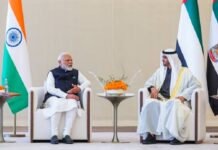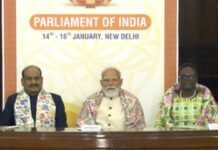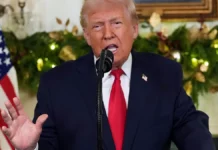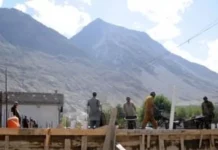 NEW DELHI: Amid indications that a nuclear contract would be signed with a US company soon, India today asserted that the liability law will apply to all agreements that are inked with any country and there was no question of diluting or bypassing it.
NEW DELHI: Amid indications that a nuclear contract would be signed with a US company soon, India today asserted that the liability law will apply to all agreements that are inked with any country and there was no question of diluting or bypassing it.
External Affairs Minister Salman Khurshid, National Security Adviser Shivshankar Menon and Foreign Secretary Sujatha Singh separately sought to allay apprehensions in the wake of a row that the pact being signed between state-owned Nuclear Power Corporation of India Ltd (NPCIL) and US company Westinghouse would bypass the Nuclear Liability Law.
“Yes, we are close,” Menon said when asked whether an agreement between NPCIL and Westinghouse was close to being signed before Prime Minister Manmohan Singh leaves for the US on September 25.
On the controversy, he said, “I was surprised yesterday to see stories that somehow Indian law will not be applicable to nuclear projects in India. Civil nuclear projects in Indian would naturally be subject to Indian laws including civil liability.”
Commenting on the issue, Khurshid said, “Apprehensions are not facts. Apprehensions need discussions. We have been in discussions with the US companies for a long time. We have tried to say to them that the law of the country – both Parliamentary legislation as well as rules and regulations that have been framed.”
He told reporters that “We believe sincerely and honestly to address their concerns adequately. This is a matter of conversation, a matter of discussion and agreement. I hope that in due course we will be able to come to a common view on this.”
The Foreign Secretary said any company, foreign or domestic, will have to follow procedures consistent with the Indian laws. . “There is no question of Indian law being violated or diluted. That is the bottom line,” Sujatha Singh asserted.
She said civil nuclear cooperation with the US is a “pillar” in the bilateral relationship.
Asked whether the contract between NPCIL and Westinghouse would be signed during the Prime Minister’s visit, she said discussions between the two sides are “ongoing” and “it is our hope that these discussions will be closed successfully”.
On the apprehensions, the Foreign Secretary said, “The fact of the matter is that all contracts with foreign companies are subject to Indian Civil Liability for Nuclear Damages Act and Rules. A contract has to be consistent with the Indian laws.”
Noting that NPCIL is a state-owned company, she said it “just follows Indian laws” and its pacts will be consistent with the Liability Act.
Asked whether the same yardstick would apply to nuclear cooperation with Russia, she said, “Whichever country we have cooperation with, there are same objectives of building nuclear plants” as part of efforts to enhance India’s energy security.
Menon, when questioned whether the US was in agreement with the Indian liability law, said, “It is not just the US, our Indian domestic suppliers and other foreign partners all ask questions how does this law work. How will it apply and they need to know to do business.”
The NSA said the government was “in the process of addressing these questions with them individually and as a whole so that we also have clarity. It is our interest as well as we would not want to be surprised on how it works. We will work out those issues”.
On why there was no movement on signing commercial contracts for setting up nuclear plants even eight years after the inking of the civil nuclear deal, Menon said, “On the civil nuclear issue, we had to clear the ways which prevented us from working together with our partners abroad. We had also to work bilaterally with our partners. We have now come to the stage of commercial negotiations between firms.”
Terming the civil nuclear agreement of 2008 as the symbol of transformed relationship between India and the US, the NSA said the two sides have resolved all government-to-government permissions and understandings required for enabling commercial negotiations between NPCIL and Westinghouse and for AERB to begin its independent valuation of the safety of the proposed nuclear power plants.
He said India’s stand has consistently been that “whatever nuclear power parts are imported, they should meet the highest standards of safety and deliver power at competitive prices”.
He said the respective governments have done “what they had to do and this has not happened overnight. We have done it not only with the US but other partners also. It is now only about taking commercial negotiations through and then on building plants”.-PTI






